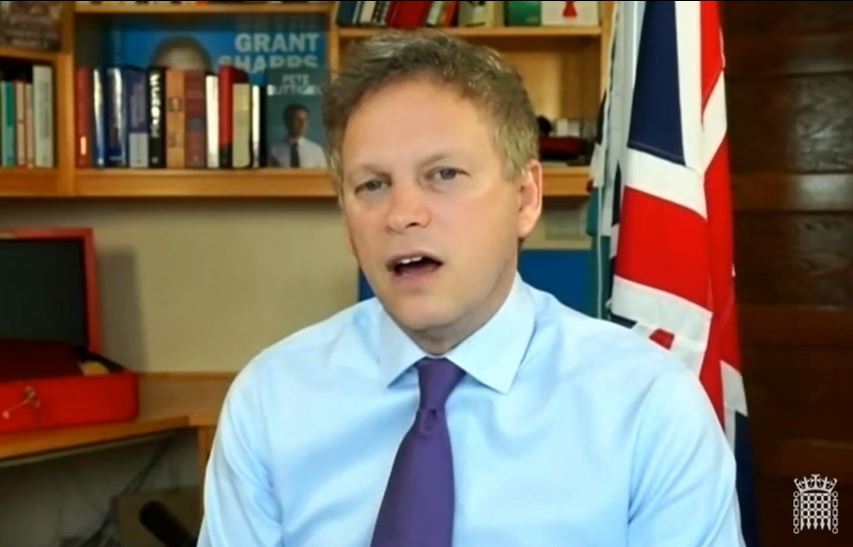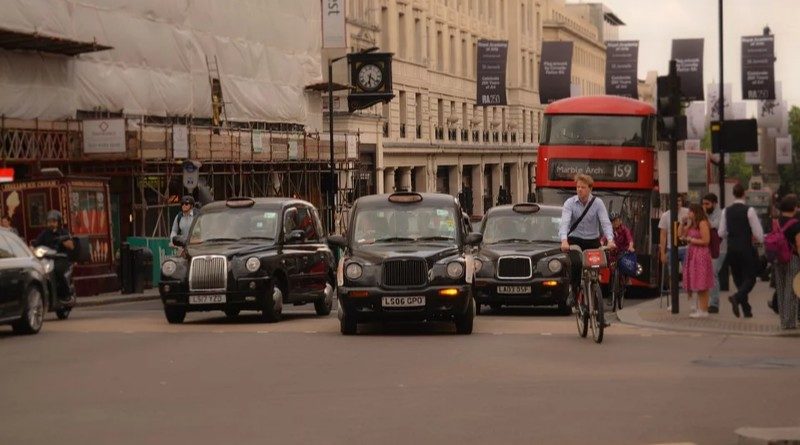Transport Secretary: “half of urban journeys must be cycled or walked” by 2030
Transport Secretary Grant Shapps has told a UK transport committee panel that there is now an ambition to see “half of all journeys in towns and cities to be walked or cycled by 2030.”
 Speaking remotely, Mr Shapps reiterated a statement first set out during the launch of the Government’s Gear Change document, which has formed a loose foundation for progress since Boris Johnson took the helm as Prime Minister.
Speaking remotely, Mr Shapps reiterated a statement first set out during the launch of the Government’s Gear Change document, which has formed a loose foundation for progress since Boris Johnson took the helm as Prime Minister.
Yesterday’s session saw Labour Party MP and All Party Parliamentary Group on Cycling and Walking officer Lillian Greenwood press the Transport Secretary on car traffic reduction targets and how active travel might step in to fill the void if the Government is to take congestion, pollution and climate goals seriously.
Greenwood began: “Last year in the foreword to the Transport Decarbonisation Setting the Challenge paper you said you’d be aiming for a net zero future where we use cars less, but the Department’s own road traffic forecast still predicts a 17% to 51% increase in car use by 2050 and obviously many people are worried at the moment about a car led recovery. Will the plan published set a target for car traffic reduction?”
Shapps, who has previously pledged support for the motorist in statements supposedly supporting active travel schemes, one again appeared torn on how active travel goals would be achieved in tandem with what he perceives to be a future where the electric car will become more prominent.
“I’m not anti car, what I want are cars that are green that don’t damage the environment by bumping out co2 and greenhouse gases. I’m not against idea that people get in car,” started Shapps. “The committee for climate change points out that that might be a difficult balance to achieve. So, it’s quite right to look at car use versus other forms of transport.
He goes on to acknowledge an elephant in the room; journey length and the fact that so many trips shy of three miles are driven.
“So many journeys are so very short, you could achieve a double win of improving heath and getting around. The exact balance of how we get there needs to be looked at carefully. I don’t start personally from a view of banishing all cars from the roads; they’re a very convenient form of transport.”
Greenwood continues pressing on congestion and the liveability of towns and cities asking for a car reduction target.
Shapps said: “I would like to outline the competing dilemmas in creating a decarbonisation plan, or any transport plan. I agree on congestion, but nor do I want to give off impression cars are bad and everything else is good, I don’t think it’s that simple, especially given as I think that 10% of new cars sold now are electric.”
Greenwood asked about Gear Change’s aim of doubling walking and cycling and investment by 2025, saying “Has your department commissioned any research into what level of investment needed to achieve that target?”
Shapps replied: “We want half of all journeys in towns or cities to be cycled or walked by 2030. So, that’s what we’re headed for, we have a lot of work, research and a lot of input from the Transport Decarbonisation plan to delver that and frankly a lot of money. As you know £2bn over five years is a record investment in cycling and walking. We must wait for the plan for the full details.
“Is that a new target?,” asks Greenwood.
“The 2030 plan I mentioned is from the Prime ministers 28th of July Cycling plan. Because we now have more money than ever before we can be more ambitious and the active travel fund is designed to do that. We have seen a lot of money go into making places easier to walk and cycle around, mostly for the better but occasionally not,” said Shapps.
“Is that amount going to need to be increased in order to meet the targets set out to 2030?,” presses Greenwood.
“There’s no way that we would stop spending in 2025 on something we consider to be a huge priority. This particular budget has been set for the 2025 period. I wouldn’t want the committee to think we will stop spending, but at the same time I don’t have the spending figures for the next period after that,” replied the Transport Secretary.
The Transport Secretary says that the allocated £2 billion puts the country “on track” to achieve half of journeys cycled or walked by 2030 in towns and cities.
However, the budget allocation is something that the Government has been repeatedly pressed on as the numbers do not seem to add up by a long shot, something that is even conceded by some of the party’s own MPs.
The entire five year cycling and walking budget, for context, is actually £500 million short of the specific budget just for filling potholes in the road network. The broader roads budget is over 13-fold that of active travel’s allocation.
The statement from the Transport Minister quickly follows a further comment made by the Prime Minister earlier this week in which he said the UK must “crack on” with active travel schemes despite a noisy minority opposition.



